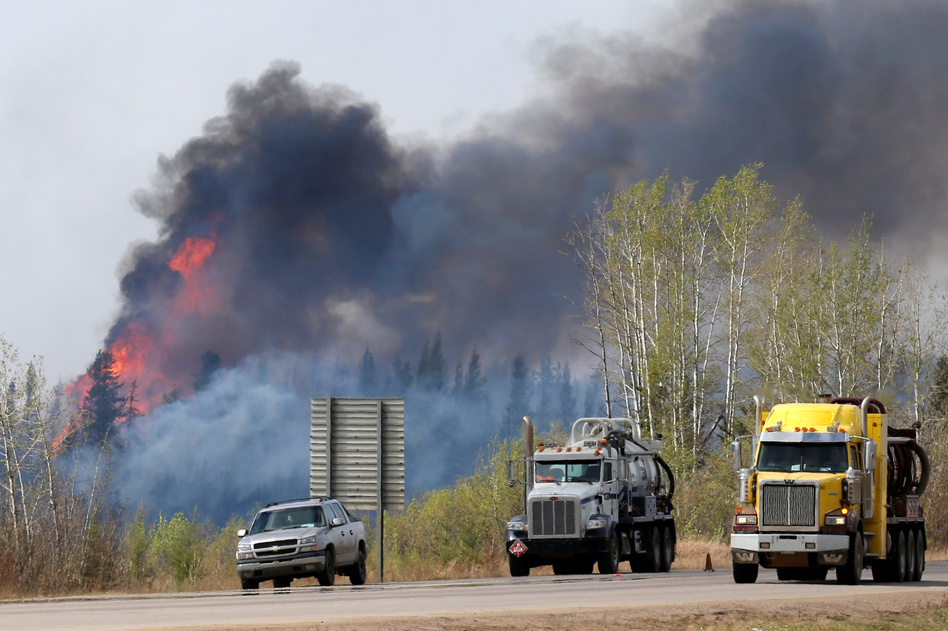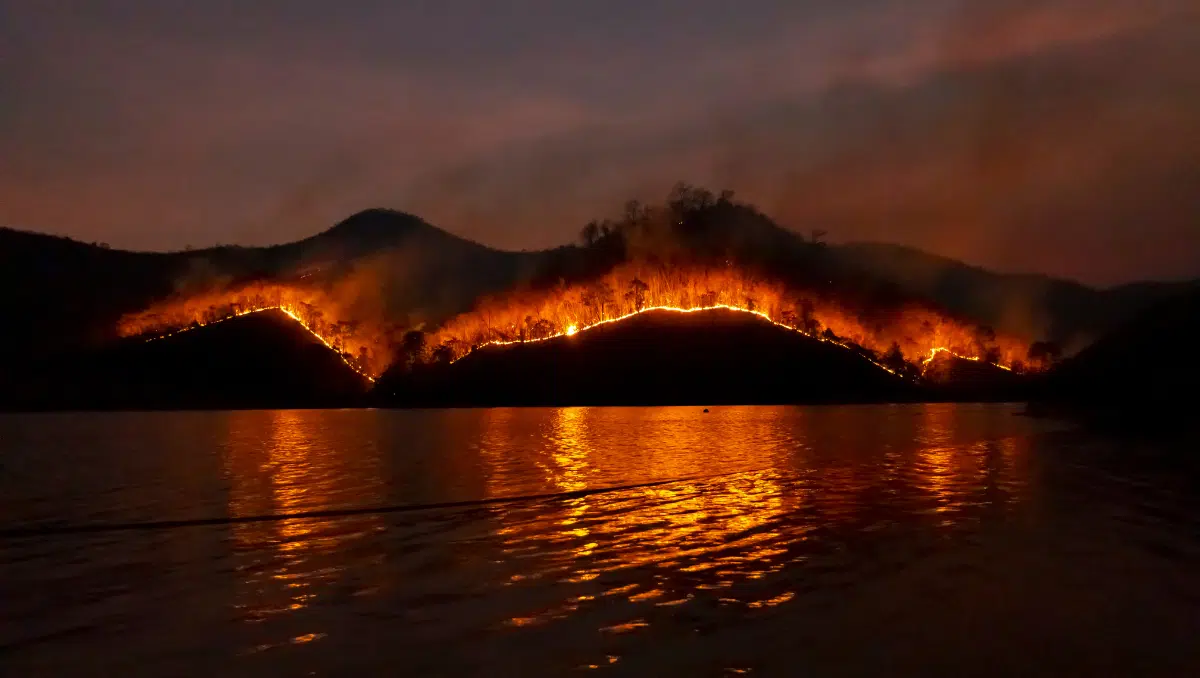Wildfires in Alberta and British Columbia are causing smoky skies and affecting air quality in the regions all over North-Western Canada. Evacuation orders have affected around 13,000 people in Alberta, where crews are battling more than 900 fires across the province amid dry conditions and high winds.

There are several active fires currently in British Columbia’s northeast, like the 60-hectare Coffee Creek blaze just northwest of Fort St. John. The Fort St. John region received an Air Quality Health Index rating of 8, indicating “high risk”, with the conditions forecast to persist for the next 24 to 48 hours.
Residents are asked to reduce their level of activity if they experience breathing problems, stay cool and hydrated. and keep medication at hand if they have asthma or chronic illnesses.The alert recommends remaining indoors, using a HEPA oxygen filter, or replacing the filter in one’s central heating/cooling system and operating the fan continually to reduce smoke exposure.
Evacuation orders in Alberta
As wildfires intensify and ravage through, more than 13,000 people residing in Alberta have been placed under evacuation orders. The Little Red River Cree Nation in northern Alberta has been the worst-hit area, with more than 20 homes and a police station destroyed in the fires. The situation is further aggravated by the region’s dry conditions and high winds that have caused the fires to spread rapidly. Alberta is currently experiencing more than 70 active fires, several of which are out of control.

The smoke from fires in Alberta and British Columbia is affecting air quality in the regions around Fort Nelson and Fort St. John causing major damage to the ecosystem diversity of the area. Alberta does not possess helicopters and instead collaborates with commercial companies to assist with firefighting as needed. A private contractor was involved in a recent helicopter crash at Edson Airport in western Alberta. The only individual on board was the pilot, who suffered minor injuries.
Western Canada faces threat of flooding due to rapid snowmelt
British Columbia, on the Pacific coast, has been hit majorly with multiple fires burning inland, and rapid snowfall have raised river levels, causing some to exceed their banks. Heavy rains forecast over the weekend could exacerbate the problem causing heavy flooding with unusual natural conditions.
The combination of the wildfires and snowmelt is a concerning one, as heavy rain could worsen the flooding situation in some areas. The provincial authorities in British Columbia have issued warnings of possible severe flooding and have urged residents to prepare for the worst.
Indications for the Future?
Western Canada has been hit repeatedly by extreme weather in recent years, with the intensity and frequency of weather events increasing due to global warming. Two years ago, British Columbia was hit by the effects of a “historic” heat dome, followed by major fires that claimed hundreds of lives. The current wildfires and flooding in Alberta and British Columbia are the latest in a series of extreme weather events that are causing widespread destruction and displacement in the region.

The region has previously experienced catastrophic flooding, heatwaves, and wildfires that have caused loss of life and property damage.
The Canadian government has been criticized for not taking more aggressive action to address climate change, including reducing greenhouse gas emissions. Environmental groups have called for stronger policies to transition to renewable energy and reduce dependence on fossil fuels.
The wildfires in western Canada serve as a reminder of the urgent need to address the global climate crisis. As extreme weather events become more frequent and intense.













